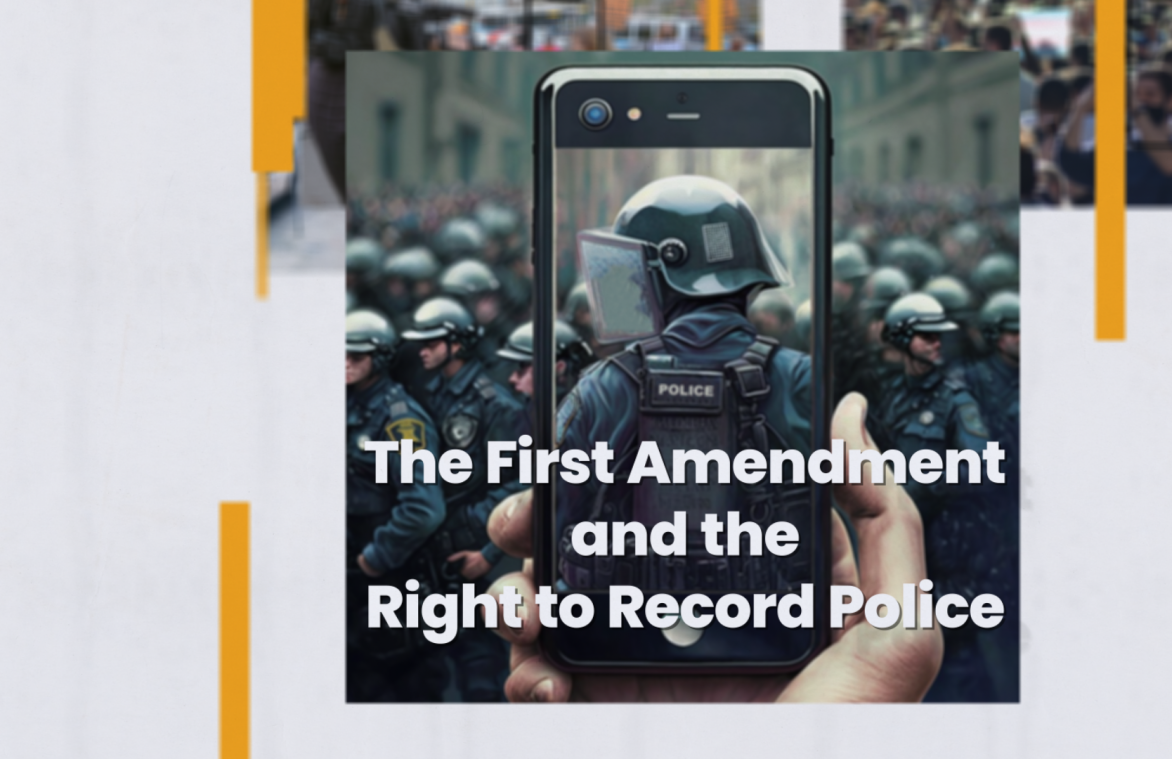The Free Speech Center and First Amendment Watch have just released Recording Police: Know Your Rights, a 29-minute video guide to documenting police actions with your cell phone. It could not be more timely.
Veteran photojournalist Stephanie Keith was arrested May 8 in New York City while covering a protest over the recent killing of subway rider Jordan Neely. Neely’s death sparked controversy over how the city aids those who are unhoused and dealing with mental illness, as well as questions about the NYPD’s handling of Neely’s case.
At an NYPD press conference that evening, Chief of Patrol John Chell said Keith “interfered” in three unspecified arrests. Videos of the incident posted on Twitter show Keith identifying herself as a press photographer, but she was arrested anyway and charged with disorderly conduct, The Associated Press reported.
Keith’s arrest is not an isolated incident, either for journalists or for bystanders who use cellphones to record police actions in the streets.
Millions went into the streets during the summer of 2020 to protest the killing of George Floyd by Minneapolis police, an incident recorded by Darnella Frazier on her cellphone. According to the U.S. Press Freedom Tracker, an open-source database of press-freedom incidents, there have been 196 incidents of journalists being arrested while covering protests since Floyd’s death May 25, 2020.
The First Amendment right to record police officers in the course of carrying out their duties in public is critically important to the ability of journalists and citizens to hold the government accountable. Recordings of police officers mistreating suspects, of course, has spawned a larger political movement to reform police practices. It has also brought conflict between police officers and the people who are recording them.
The new in-depth video guide focuses on the rights of those who wish to photograph or record video in public places like streets, sidewalks and parks.
“Eight federal appeals courts have recognized that videos of police officers working in public serve the critical First Amendment value of helping to hold public officials accountable for their actions,” said Stephen D. Solomon, NYU journalism professor and editor of First Amendment Watch.
“’Recording Police: Know Your Rights’ explains that recording police officers in public is a First Amendment right, but also gives citizens the tools they need to navigate such situations and not get arrested,” said Free Speech Center Director Ken Paulson. “It can be a delicate balance.”
The video is available at the home sites of both the Free Speech Center and First Amendment Watch, as well as on Twitter, YouTube, Facebook and Instagram.
The Free Speech Center newsletter offers a digest of First Amendment and news media-related news every other week. Subscribe for free here: https://bit.ly/3kG9uiJ

